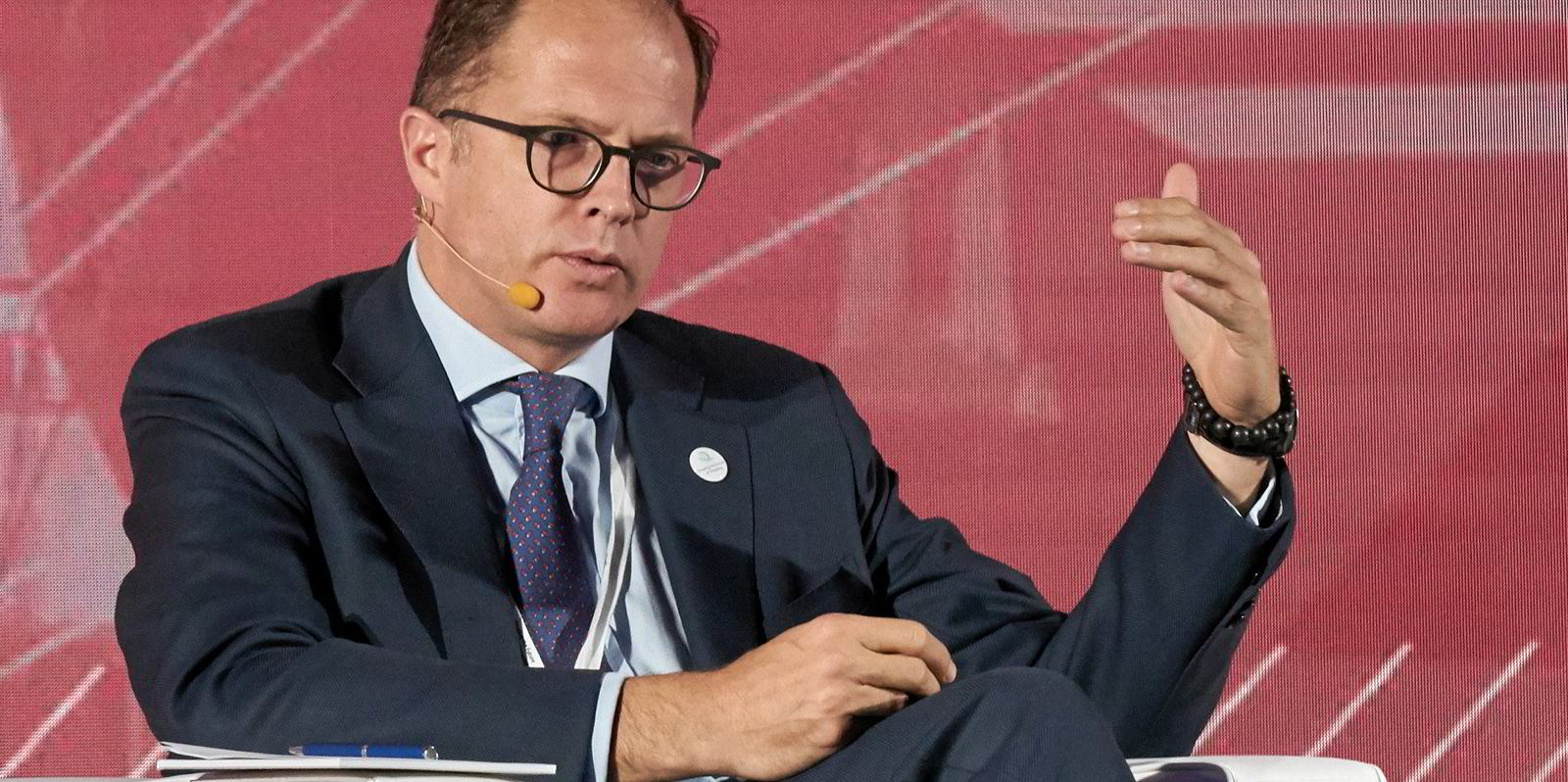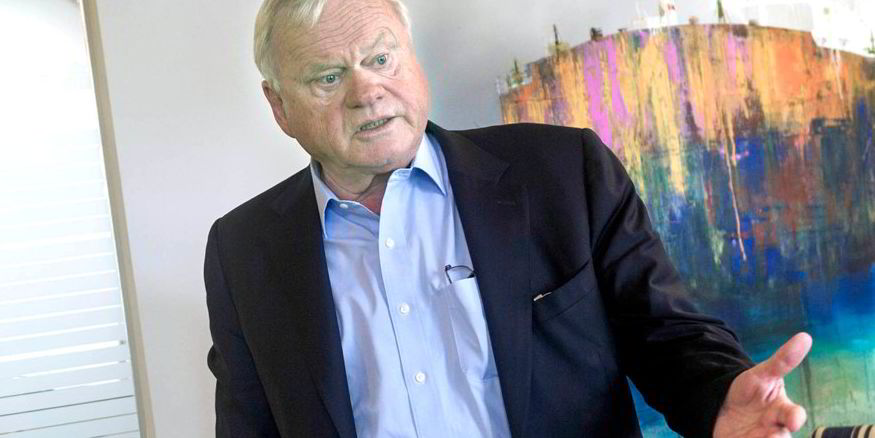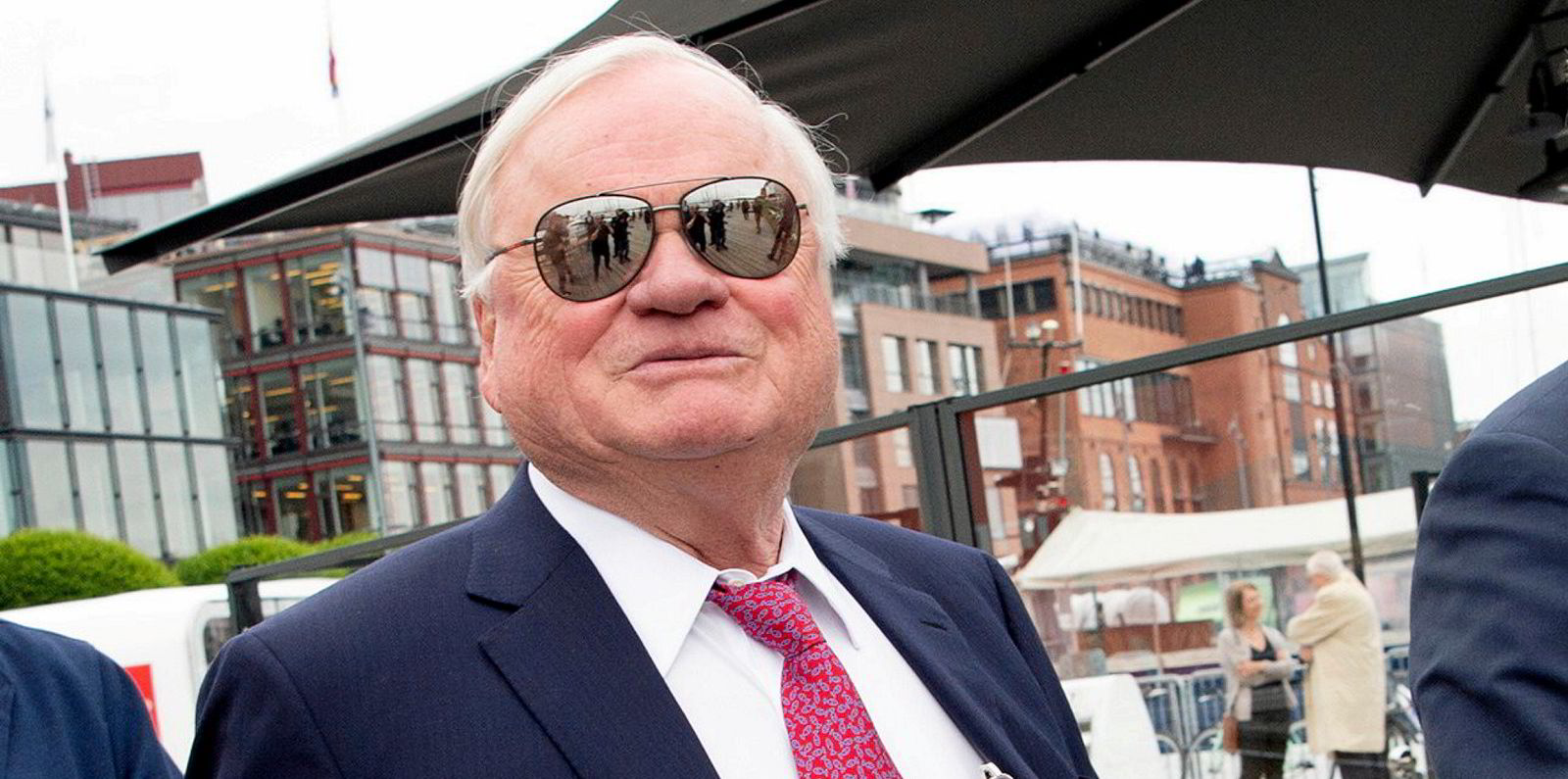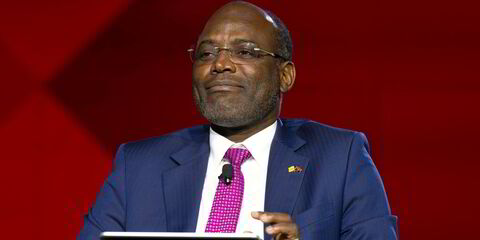John Fredriksen, the freewheeling shipping entrepreneur, has made one of his most daring moves yet with his eye-wateringly large $2.35bn takeover of 24 Euronav tankers.
Securing his stock-listed Frontline company as the world’s biggest independent very large tanker owner in tonnage terms will leave him well-placed to cash in on an anticipated demand boom.
Equally, if the world slides into economic recession and the need for crude slumps, then the Norwegian-born shipowner could be sitting on a very large — sinking — white elephant.
Frontline would be increasing its capacity from 12.5m dwt to 19.7m dwt, up nearly 60%. It would have a VLCC fleet of 46.
Yet the immediate outlook for big tankers does not look rosy, with Saudi Arabia and Russia choosing to continue with voluntary cuts to crude output at least until Christmas.
This has helped push oil prices up close to $100 per barrel in recent weeks and freight rates for some tankers are back down close to breakeven levels after an earlier optimistic flourish in 2022.
At the start of this year, the trade disruption caused by the Russian invasion of Ukraine, plus the lack of new tanker capacity coming on stream, had led to excited talk of a new supercycle.
That has failed to materialise with a major slump in Russian seaborne exports since spring, but there are still hopes that with crude inventories falling, inflation rising again, and Opec coffers replenished, the production caps will eventually be slackened by Saudi Arabia and Russia unleashing strong demand for tonnage.
And there are still virtually no new VLCCs on the slipway for the next 24 months. Evercore ISI analyst Jonathan Chappell estimates there is only one new vessel to be added to the fleet in 2024 and so far only for the following year.

Chappell pointed out this unique situation in a research note this week: “What does history tell us about the impact on rates from fleet growth of 1% — 0.1% to be exact — in consecutive years?
“It doesn’t offer any insight at all because there has never been such a de minimis number of new deliveries to a major asset class over a two-year period. However, history does show that in prior periods of limited new capacity adds, tanker spot rates move higher.”
Jefferies analyst Omar Nokta is similarly optimistic, saying that the tanker boom has been deferred but strengthened and is still hopeful that 2024 will be a “banner year”.
Fredriksen, who masterminded the deal, will have done his own calculations. While he does get some things wrong — certainly underestimating the Saverys family’s determination to stymy his earlier hopes of a Euronav/Frontline merger — he has a reputation for getting most big decisions right.
As Frontline put it in an upbeat statement: “All (the newly-acquired) vessels are on the water, in an environment of long lead times for new capacity to be obtained.”
Spending $2.35bn on tankers is a mega deal in shipping, but it is perhaps worth putting it into the context of other sectors, such as oil that provides the cargoes.
ExxonMobil is currently pondering a $60bn deal to take over US shale producer Pioneer Natural Resources — a small change arguably for an oil major, which has more than half that amount sitting in free cash on its balance sheet.
Deal ends of trench warfare
Meanwhile, Frontline and Fredriksen’s privately owned Famatown Finance will themselves get more than $1bn back from selling out their holdings in Euronav.
Perhaps, most importantly, the deal marks the end of the trench warfare and ultimate stalemate over strategy between Fredriksen and the Saverys family at Euronav, which cost former chief executive Hugo De Stoop his job.
His interim successor, Lieve Logghe, said after months of uncertainty that the transaction “leverages the value that Euronav and its people have created through many years of hard work”.
The Belgian-based shipping company said it would retain its listing on Euronext Brussels and in New York, but many analysts are convinced the Saverys will eventually take Euronav private if they can.
Fredriksen will leverage his advantage of being the biggest pure-play stock-listed tanker company sucking in new investors looking for exposure to seaborne crude transport in what should be a tightening market.





